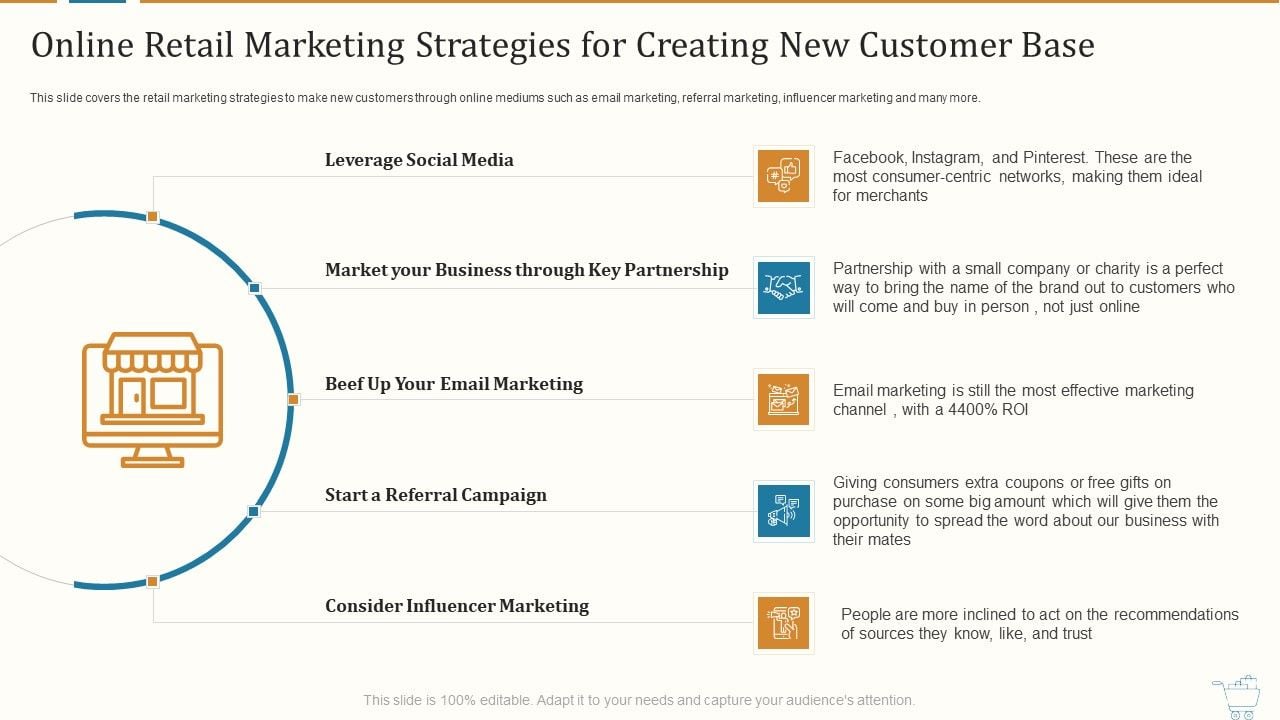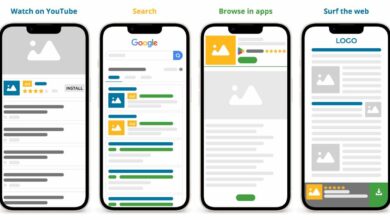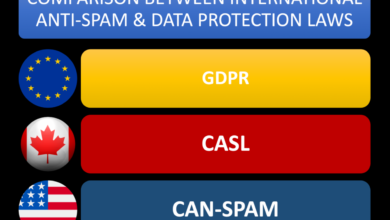
Marketing Strategies Retailers Need A Complete Guide
Marketing strategies retailers need are crucial for success in today’s competitive market. This comprehensive guide delves into various strategies, from understanding unique retailer types to optimizing digital marketing campaigns and building strong customer relationships. We’ll explore everything from crafting effective pricing and promotional strategies to creating immersive in-store experiences that resonate with customers.
Whether you’re a brick-and-mortar store, an online retailer, or a specialty shop, this guide offers tailored strategies to help you thrive. We’ll cover everything from digital marketing channels to CRM strategies and experiential marketing, helping you connect with your target audience and maximize profitability.
Retailer-Specific Strategies
Retailers face a complex landscape, with varying challenges depending on their business model. Successfully navigating these challenges requires tailored strategies that address the unique strengths and weaknesses of each format. This section delves into retailer-specific marketing approaches, from brick-and-mortar giants to online-only startups.
Brick-and-Mortar Retailers
Brick-and-mortar stores, despite the rise of e-commerce, maintain a significant presence. Their primary challenge lies in balancing physical engagement with online visibility. Successful strategies must recognize the tangible experience offered by physical stores and leverage it to drive online traffic.
- Enhanced In-Store Experience: Creating engaging displays, interactive experiences, and personalized customer service can draw customers into the store and encourage purchases. For example, a clothing store could host a weekly styling event, allowing customers to try outfits and receive personalized recommendations. A furniture store could offer 3D room visualizations using augmented reality to allow customers to experience furniture in their own homes before buying.
- Integrating Online and Offline: Implementing click-and-collect services, allowing customers to order online and pick up in-store, is crucial. Offering exclusive in-store promotions or discounts for online customers can also incentivize online engagement and brand awareness.
- Loyalty Programs Tailored for Physical Stores: A brick-and-mortar loyalty program might include rewards for in-store purchases, exclusive events, or early access to sales. A coffee shop, for instance, might reward frequent customers with free drinks on their birthdays or offer exclusive early-bird discounts on specialty drinks.
Online-Only Retailers
Online-only retailers face the challenge of building trust and community in a virtual space. Effective strategies focus on fostering a strong online presence and creating a personalized customer journey.
- Exceptional Website Design and Navigation: A user-friendly, visually appealing website is paramount. Easy product search, clear navigation, and high-quality product photography are essential. An example is a clothing retailer whose website provides detailed product descriptions, high-resolution images, and customer reviews, facilitating the decision-making process.
- Building Brand Identity: Cultivating a strong brand identity through engaging content, consistent branding, and a clear value proposition is crucial. A subscription box company, for example, might create compelling blog posts about their products, the people behind them, or lifestyle tips related to their product niche, which fosters trust and strengthens the brand.
- Leveraging Social Media and Email Marketing: Social media engagement, personalized email campaigns, and targeted advertising are critical for reaching potential customers. A beauty product company could use Instagram to showcase product usage, email newsletters to provide exclusive discounts, and Facebook ads to target specific demographics.
Specialty Stores
Specialty stores excel in niche markets but face competition from larger retailers. Their key marketing challenge is reaching their specific target audience effectively.
- Deep Dive into Target Audience: Thorough market research is vital to understand the specific needs and preferences of the target audience. This involves understanding their lifestyle, values, and motivations. A gourmet food store targeting foodies, for example, could conduct surveys to understand their favorite culinary experiences and create unique product offerings.
- Niche Marketing Strategies: Focus on specific interests or hobbies to attract the target audience. This could involve partnerships with related businesses, creating exclusive events, or sponsoring industry-related activities. A local art supply store, for example, could host painting workshops or collaborate with local artists.
- Highlighting Unique Value Proposition: Showcase the unique aspects that differentiate the store from competitors. This could include rare products, expert advice, or personalized services. A handmade jewelry store, for instance, could emphasize the unique craftsmanship and design elements of their pieces, showcasing the artistic skill involved.
Digital Marketing Strategies
Retailers are increasingly relying on digital channels to connect with customers and drive sales. Effective digital marketing strategies are crucial for staying competitive in today’s market. These strategies allow retailers to reach a wider audience, personalize interactions, and track campaign performance for continuous improvement. Understanding the nuances of various digital channels and their optimal application is paramount to success.Digital marketing offers retailers a dynamic landscape for engagement and conversion.
Retailers need a multi-pronged marketing approach to stand out. One key strategy is optimizing paid advertising, and a powerful tool in that arsenal is ppc automation. This can streamline campaigns, saving time and resources, which frees up retailers to focus on other crucial elements of their overall marketing strategies.
By leveraging these strategies, retailers can enhance customer experience, foster brand loyalty, and ultimately boost revenue.
Comparing Digital Marketing Channels
Understanding the strengths and weaknesses of different digital marketing channels is essential for creating a comprehensive strategy. The table below highlights key comparisons between popular channels:
| Channel | Strengths | Weaknesses | Examples |
|---|---|---|---|
| Social Media | Direct customer engagement, brand building, targeted advertising, real-time interaction | Requires consistent content creation, can be time-consuming, algorithm changes impact reach | Running contests on Instagram, creating engaging posts on Facebook, using targeted ads on TikTok |
| Organic traffic, long-term visibility, cost-effective (in the long run), high credibility | Takes time to see results, requires ongoing optimization, competition for s | Optimizing website content for relevant s, building high-quality backlinks | |
| PPC | Targeted traffic, immediate results, measurable ROI, specific audience targeting | Cost-per-click can be high, requires ongoing management, relies on s | Running Google Ads campaigns, using Facebook Ads for targeted promotions |
| Email Marketing | Direct communication, personalized messaging, targeted campaigns, measurable results | Requires building an email list, can be perceived as spam if not handled properly, email deliverability issues | Sending newsletters, promotional emails, abandoned cart reminders |
Website Design for Conversions and Customer Experience
A well-designed website is critical for converting visitors into customers. Optimizing website design for conversions and a positive customer experience involves several key considerations.
- Intuitive Navigation: A clear and logical website structure ensures easy navigation for customers, reducing frustration and increasing the likelihood of finding what they need.
- Mobile Responsiveness: Websites must be fully responsive to different screen sizes, ensuring a seamless experience across all devices. This is essential given the prevalence of mobile shopping.
- High-Quality Visuals: Clear, engaging product images and videos enhance the shopping experience, showcasing products in the best possible light.
- Fast Loading Speed: Slow loading times are a major turnoff for potential customers. Optimize website speed for improved user experience and search engine rankings.
- Clear Call-to-Actions (CTAs): Prominent and compelling CTAs guide users towards desired actions, such as making a purchase or signing up for a newsletter.
Effective Email Marketing Campaigns
Email marketing remains a powerful tool for reaching customers and driving sales. Crafting effective email campaigns involves several key strategies.
- Building an Engaged Email List: Offer valuable incentives (like discounts or exclusive content) to encourage sign-ups. Use pop-up forms or landing pages.
- Personalization: Tailor email content to individual customer preferences and purchase history. Use dynamic content for maximum impact.
- Compelling Subject Lines: Craft subject lines that are attention-grabbing and relevant to the recipient. Use compelling language.
- Segmentation: Divide your email list into segments based on customer demographics or behavior. This allows for targeted messaging.
- Testing and Optimization: Continuously test different subject lines, email content, and calls to action to improve campaign performance.
Using Social Media for Sales and Brand Awareness
Social media platforms offer a unique opportunity to engage directly with customers and build brand awareness.
- Platform Selection: Identify the social media platforms where your target audience is most active. Focus your efforts on those platforms.
- Content Strategy: Create engaging and valuable content that resonates with your target audience. Share relevant news, behind-the-scenes content, and customer testimonials.
- Community Building: Engage with your followers by responding to comments and messages. Foster a sense of community around your brand.
- Targeted Advertising: Utilize social media advertising to reach specific demographics and interests. This allows you to connect with potential customers who are already interested in your products.
Implementing Influencer Marketing
Partnering with influencers can significantly expand your reach and influence specific demographics.
Retailers need a multifaceted marketing approach, focusing on more than just discounts. Understanding “perceived value pricing” – why charge more for your products? – is key to boosting sales. This insightful article delves into the strategies behind it, helping you position your goods as premium offerings. Ultimately, a blend of effective marketing strategies, including understanding customer perception, is crucial for any retailer’s success.
- Identifying Relevant Influencers: Research influencers whose audience aligns with your target demographic. Ensure their values and content align with your brand.
- Strategic Partnerships: Develop authentic partnerships with influencers, ensuring their content feels genuine and adds value to your brand.
- Measuring Results: Track the performance of influencer campaigns to understand their impact on brand awareness and sales.
Customer Relationship Management (CRM)
Retail success hinges on understanding and nurturing customer relationships. A robust CRM strategy is crucial for moving beyond transactional interactions to building lasting customer loyalty. This approach not only drives repeat business but also provides invaluable insights into customer preferences, enabling personalized marketing campaigns that resonate deeply. By effectively managing customer data, retailers can gain a competitive edge in today’s market.Customer data, when collected and analyzed thoughtfully, becomes a powerful tool for retailers.
It’s not just about accumulating information; it’s about understanding the “why” behind customer actions. This understanding fuels personalized marketing strategies that lead to increased sales and stronger customer relationships. By segmenting customers and tailoring messages to their specific needs, retailers can enhance engagement and foster a sense of connection, ultimately driving loyalty and repeat business.
Collecting and Analyzing Customer Data
Collecting comprehensive customer data is essential for a successful CRM strategy. This data encompasses various touchpoints, including purchase history, browsing behavior, communication preferences, and demographics. Analyzing this data uncovers valuable insights into customer needs, preferences, and motivations. This analysis reveals patterns in buying behavior and allows for the development of targeted marketing campaigns that resonate with specific customer segments.
Building a CRM Strategy for Customer Loyalty, Marketing strategies retailers need
A well-structured CRM strategy is not a one-time effort; it’s an ongoing process of refinement and adaptation. It should be aligned with the overall business goals and objectives. This includes establishing clear customer service protocols, providing personalized experiences, and proactively addressing customer concerns. Consistent communication and tailored offers foster a sense of value and appreciation, leading to customer loyalty and repeat business.
Customer Segmentation Framework
A robust customer segmentation framework is the cornerstone of personalized marketing. It categorizes customers based on shared characteristics and behaviors, allowing for the development of targeted marketing campaigns. Segmentation can be based on various criteria, such as demographics (age, location, income), purchasing behavior (frequency, value of purchases, product preferences), and engagement levels (website activity, email open rates, social media interactions).
Retailers need killer marketing strategies, and a crucial part of that is understanding user experience. One key element is minimizing “first input delay,” which significantly impacts how quickly customers can interact with your site. Knowing how fast your website responds to user input is essential for a positive customer experience and effective marketing. A fast site, like one with a low first input delay ( first input delay ), encourages engagement and ultimately drives sales.
Ultimately, understanding these details is critical for crafting successful marketing strategies.
This framework enables retailers to tailor their offerings and messaging to specific customer groups.
| Segment | Characteristics | Marketing Approach |
|---|---|---|
| High-Value Customers | Frequent buyers, high average order value | Exclusive offers, personalized recommendations, VIP treatment |
| New Customers | First-time buyers | Welcome bonuses, introductory discounts, personalized onboarding experience |
| Loyal Customers | Regular buyers, high lifetime value | Exclusive rewards programs, personalized anniversary gifts, early access to sales |
Personalizing Marketing Messages
Personalization goes beyond simply addressing customers by name. It involves tailoring the entire customer journey. This includes sending targeted promotions based on past purchases, recommending relevant products based on browsing history, and providing customized support based on customer needs. Tailored messages increase engagement and create a more positive brand perception. By understanding each customer’s unique needs and preferences, retailers can deliver more relevant and effective marketing messages.
CRM Tools and Technologies
A wide array of tools and technologies support CRM strategies. These tools help automate tasks, manage customer data, and personalize interactions. Some popular options include:
- Customer Relationship Management (CRM) software platforms (e.g., Salesforce, HubSpot, Zoho): These platforms provide centralized data storage, automation features, and analytics tools.
- Email marketing platforms (e.g., Mailchimp, Constant Contact): These platforms allow for targeted email campaigns, personalized messaging, and automated email sequences.
- Marketing automation platforms (e.g., Marketo, Pardot): These platforms automate marketing tasks, personalize customer interactions, and track campaign performance.
- Social media management tools (e.g., Hootsuite, Buffer): These tools streamline social media interactions and allow for targeted advertising.
- Data analytics and reporting tools: These tools help retailers analyze customer data, identify trends, and make data-driven decisions.
Pricing and Promotions

Retail pricing and promotions are crucial levers for success. A well-defined strategy can significantly impact profitability, customer acquisition, and overall brand perception. Effective pricing considers market trends, competitor analysis, and cost structures, while promotions create excitement and drive sales. This multifaceted approach can optimize revenue generation and foster customer loyalty.Understanding the interplay between pricing, promotions, and customer behavior is paramount.
Competitive pricing strategies, coupled with targeted promotions, are instrumental in attracting and retaining customers in today’s dynamic retail landscape. Ultimately, a well-conceived pricing and promotions strategy can be a potent engine for driving growth and achieving sustainable profitability.
Pricing Strategies for Profit Maximization
Effective pricing strategies hinge on understanding the market dynamics and the retailer’s unique position. Pricing products competitively while maintaining profitability is essential for survival in a saturated market. Value-based pricing, where the perceived value of a product justifies its price, can be a potent tool for attracting customers.
Promotional Strategies: Discounts, Bundles, and Loyalty Programs
Promotional strategies play a critical role in driving sales and fostering customer engagement. Different strategies cater to different customer segments and brand objectives.
- Discounts: Offering discounts can create a sense of urgency and incentivize immediate purchases. They can be used to clear out excess inventory or introduce new products. The effectiveness of discounts depends on their magnitude and the frequency of their application.
- Bundles: Combining multiple products into a single package can increase the perceived value and encourage customers to purchase more items. Bundling can be especially effective when the combined value exceeds the individual prices of the components.
- Loyalty Programs: These programs incentivize repeat purchases and build customer loyalty by rewarding consistent patronage. Points-based systems, tiered benefits, and exclusive offers are common components of loyalty programs.
Effectiveness of Different Pricing Models
The effectiveness of pricing models is influenced by several factors, including the product, target market, and economic conditions.
- Cost-plus pricing: This method calculates the price by adding a markup to the cost of production. It’s straightforward but may not always reflect market demand or competitor pricing.
- Value-based pricing: Value-based pricing sets prices based on the perceived value of the product to the customer. It can lead to higher profitability but requires a clear understanding of customer needs and preferences.
- Competitive pricing: This strategy involves setting prices similar to competitors’ prices. It’s often used in highly competitive markets and aims to maintain market share.
Creating Urgency and Scarcity with Promotions
Creating a sense of urgency and scarcity can be a potent driver for sales. Time-limited offers, limited-quantity promotions, and exclusive access can encourage immediate purchases.
- Time-limited offers: Promotions with expiration dates create a sense of urgency, encouraging customers to act quickly.
- Limited-quantity promotions: Communicating that a product is in limited supply can create a sense of exclusivity and encourage immediate purchase.
- Exclusive access: Offering promotions or products to a select group of customers can increase their perceived value and drive demand.
Analyzing the Impact of Promotional Strategies
Measuring the impact of promotional strategies is crucial for optimizing future campaigns. Key performance indicators (KPIs) should be carefully selected to assess the effectiveness of different promotions.
- Sales data: Tracking sales figures before, during, and after a promotional campaign provides valuable insights into its impact.
- Customer acquisition cost (CAC): Analyzing the cost of acquiring new customers through promotions can help evaluate the return on investment.
- Customer lifetime value (CLTV): Understanding the long-term value of customers acquired through promotions can reveal the true ROI of the campaigns.
Experiential Marketing
Retailers are increasingly recognizing the power of experiential marketing to create lasting impressions on customers. Moving beyond transactional interactions, experiential marketing fosters emotional connections and builds brand loyalty by engaging customers on a sensory and interactive level. This approach allows retailers to transform their physical stores into dynamic environments that resonate with their target audience, ultimately driving sales and brand advocacy.Experiential marketing goes beyond traditional advertising and promotional campaigns.
It’s about crafting an immersive brand experience that touches every aspect of the customer journey, from the moment they enter the store to the final purchase. This approach allows for a deeper understanding of the customer’s needs and preferences, leading to more tailored and effective marketing strategies.
Creating Memorable In-Store Experiences
Experiential marketing strategies are focused on making customers feel something. This includes a carefully orchestrated sequence of sensory elements – from lighting and music to the layout and design of the store. This strategy should cater to the specific needs of the target audience. For instance, a store targeting young professionals might prioritize sleek, modern aesthetics and a vibrant atmosphere.
- Interactive Displays: These displays should encourage exploration and interaction, making the shopping experience more engaging. For example, a clothing store could have interactive mannequins that allow customers to virtually try on different outfits or a section where customers can customize their own accessories.
- Product Demonstrations: Live demonstrations provide customers with hands-on experience with products, allowing them to understand their functionality and benefits. This is particularly effective for complex products. For example, a home appliance store could offer cooking demonstrations or a tech store could demonstrate the latest gaming consoles.
- Personalized Experiences: Tailoring the experience to individual customer needs and preferences can create a unique and memorable encounter. For example, a bookstore could recommend books based on past purchases or browsing history.
- Event Integration: Hosting events like workshops, fashion shows, or concerts can create a buzz around the store, attracting a large crowd and increasing engagement.
Creating a Unique Brand Identity Through Immersive Experiences
A strong brand identity is crucial for a retailer’s success. Experiential marketing offers a powerful tool for creating a unique brand identity by making the brand tangible and memorable. This should be carefully planned, ensuring it aligns with the brand’s overall values and message.
- Storytelling Through Design: The store’s design, layout, and atmosphere should tell a story about the brand’s values and history. For example, a vintage clothing store could use old-fashioned signage and lighting to create a nostalgic atmosphere.
- Thematic Displays: Creating themed displays based on current trends, seasonal events, or specific products can attract customers’ attention and make the store more appealing. This can be a great way to show off new collections or promote specific items.
- Brand Ambassadors: Brand ambassadors can act as knowledgeable guides, providing information and assistance to customers while showcasing the brand’s values and personality. This strategy can strengthen the customer’s connection to the brand.
Leveraging Technology to Enhance the Customer Experience in Physical Stores
Integrating technology into the physical store enhances the customer experience and offers a more engaging and efficient shopping experience.
- Interactive Kiosks: Kiosks can provide customers with product information, personalized recommendations, and interactive games. This is especially useful for large retailers where customers may be overwhelmed by a vast selection.
- Augmented Reality (AR) Experiences: AR applications can allow customers to visualize products in their homes or try on clothes virtually, improving the decision-making process. This is particularly effective for furniture or fashion retailers.
- Personalized Recommendations: Using customer data to provide tailored recommendations can enhance the shopping experience and improve customer satisfaction. This is a crucial step in enhancing customer retention.
Strategies for Creating Interactive Displays and Product Demonstrations
Interactive displays and product demonstrations are essential elements of experiential marketing, turning passive browsing into an active learning experience.
- Interactive Touchscreens: Touchscreen displays can offer detailed product information, videos, and interactive games, making the shopping experience more engaging. This is especially effective in electronics stores.
- Product Customization: Offering the opportunity for customers to customize products or personalize experiences can increase their engagement and create a more memorable shopping journey. For example, a jewelry store could offer custom engravings.
- Sensory Experiences: Using visual, auditory, and tactile elements can enhance product demonstrations and attract attention. For example, a perfume store could use different scents and fragrances to showcase different products.
Creating a Welcoming and Engaging Atmosphere
A welcoming atmosphere is vital for creating a positive customer experience. It encourages customers to linger, explore, and ultimately, make purchases.
- Music Selection: The right music can set the mood and create a positive ambiance. This can differ depending on the target audience and brand identity.
- Lighting Design: Appropriate lighting can highlight products, create a warm atmosphere, and influence customers’ perceptions. Proper lighting can make a significant impact on the customer experience.
- Staff Training: Well-trained staff can provide exceptional customer service and guide customers through the store, creating a memorable and positive experience. Staff are crucial to the success of an experiential marketing campaign.
Sustainability and Ethical Considerations

Retailers are increasingly recognizing the importance of integrating sustainability and ethical practices into their operations and marketing strategies. Consumers are becoming more discerning, demanding transparency and accountability from brands. This shift necessitates a proactive approach to ethical sourcing, environmentally conscious production, and effective communication of a brand’s commitment to sustainability. By prioritizing these factors, retailers can build trust, enhance brand reputation, and attract environmentally and socially conscious customers.Integrating sustainable practices into marketing strategies requires a holistic approach, encompassing all aspects of the business.
This includes sourcing materials responsibly, minimizing environmental impact throughout the supply chain, and promoting sustainable consumption habits among customers. It’s no longer enough to simply claim to be sustainable; retailers need to demonstrate concrete actions and measurable results.
Sustainable Practices in Marketing Strategies
Integrating sustainable practices into marketing strategies requires a multifaceted approach. It’s essential to communicate a brand’s commitment to sustainability transparently and authentically. This involves highlighting eco-friendly materials, reducing packaging waste, and implementing energy-efficient practices in stores. Examples include using recycled or biodegradable packaging, promoting reusable shopping bags, and partnering with organizations focused on environmental conservation. Such initiatives not only resonate with environmentally conscious consumers but also enhance a brand’s reputation.
Ethical Sourcing and Production
Ethical sourcing and production are paramount to a brand’s credibility and customer loyalty. Retailers must ensure that their supply chains adhere to ethical standards, guaranteeing fair labor practices, fair wages, and safe working conditions for all involved. This includes conducting thorough due diligence to verify the ethical standards of suppliers and manufacturers. Transparency is crucial, as consumers are increasingly demanding detailed information about the origin and production process of the products they purchase.
Communicating Sustainability to Consumers
Effective communication of a brand’s commitment to sustainability is critical. This should be transparent and authentic, detailing the specific steps taken to minimize environmental impact and promote ethical practices. This could involve showcasing the use of sustainable materials, outlining the reduction of carbon emissions, or highlighting fair trade practices. Authenticity is key; consumers can quickly discern disingenuous claims, making genuine commitments essential.
Using clear, concise language, supported by credible certifications and third-party audits, builds trust and strengthens brand image.
Examples of Sustainable Brands
Several brands effectively incorporate sustainability into their marketing strategies. Patagonia, known for its commitment to environmental protection, prominently features its sustainability initiatives in its marketing materials. They actively promote their use of recycled materials, support environmental organizations, and highlight the durability and longevity of their products. Similarly, brands like TOMS, known for its one-for-one model, transparently communicates its commitment to social and environmental responsibility in its marketing campaigns.
These examples demonstrate the power of aligning marketing with ethical and sustainable practices.
Creating Transparent Communication
Transparent communication about ethical sourcing and manufacturing is vital. Retailers should provide detailed information about their supply chains, including the origin of materials, the manufacturing processes, and the labor standards employed. This information should be readily available on the brand’s website, product packaging, and in marketing materials. Providing access to detailed reports, certifications, or independent audits enhances credibility.
By demonstrating a commitment to transparency, retailers can foster trust with customers who are increasingly demanding accountability.
Measuring and Optimizing Results
Retail success hinges on understanding and responding to customer needs. Effective marketing strategies are crucial for achieving this, but quantifying their impact is equally important. Monitoring key metrics and adjusting strategies based on data analysis allows retailers to maximize their return on investment (ROI) and refine their approach.Retailers must move beyond simple impressions and clicks to understand the true impact of their campaigns.
This requires a robust system for tracking and analyzing data, allowing for informed decisions that improve efficiency and customer satisfaction.
Key Metrics for Evaluating Marketing Success
Understanding the effectiveness of marketing strategies demands a focus on specific metrics. These metrics provide quantifiable insights into campaign performance, enabling retailers to gauge success and identify areas for improvement. Sales figures, website traffic, customer acquisition costs, and conversion rates are crucial indicators. Analyzing these metrics helps determine which campaigns yield the best results and allows for the allocation of resources to high-performing initiatives.
Strategies for Tracking and Analyzing Campaign Performance
Tracking marketing campaign performance requires a systematic approach. This involves utilizing analytics platforms and tools that provide detailed reports on key metrics. Utilizing these platforms allows for a granular understanding of campaign performance, including website traffic sources, customer behavior, and conversion rates. Data visualization tools can transform raw data into easily digestible insights, providing a clear picture of campaign effectiveness.
A/B testing different marketing approaches is a vital part of this process.
Adjusting Strategies Based on Data Analysis and Feedback
Data analysis provides invaluable insights for refining marketing strategies. Regular reviews of performance data allow retailers to identify underperforming campaigns and adjust them accordingly. Understanding why certain strategies are successful or unsuccessful is critical. Customer feedback, collected through surveys and reviews, provides valuable insights into customer preferences and pain points. Combining data analysis with customer feedback enables retailers to make informed decisions that cater to customer needs and improve overall satisfaction.
This cyclical process of analysis and adjustment is vital for adapting to changing market conditions and maintaining a competitive edge.
Identifying Areas for Improvement in Marketing Campaigns
A systematic approach to identifying areas for improvement in marketing campaigns is essential. Regularly analyzing data allows for the identification of underperforming aspects. By understanding what isn’t working, retailers can focus their efforts on optimizing campaigns for maximum impact.
| Area | Indicators | Action Steps |
|---|---|---|
| Campaign Targeting | Low conversion rates, poor engagement | Refine target audience profiles, test alternative messaging and channels |
| Content Quality | Low click-through rates, low engagement on social media | Improve content quality and relevance, enhance visuals, and adapt content to various platforms |
| Marketing Channel Effectiveness | High bounce rate, low conversion rate on specific channels | Analyze channel performance, identify underperforming channels, and reallocate resources |
| Customer Journey Mapping | High customer churn, poor customer experience | Analyze customer journeys, identify pain points, and implement improvements to the customer experience |
Methods for A/B Testing Different Marketing Approaches
A/B testing is a crucial method for optimizing marketing campaigns. It involves comparing two versions of a marketing asset (e.g., a webpage, email, or advertisement) to determine which performs better. This systematic approach allows retailers to optimize their campaigns based on the most effective approach. Variations could include different headlines, calls to action, or images. Tracking key metrics such as click-through rates and conversion rates helps to determine which version is more effective.
Tools and software specifically designed for A/B testing are readily available to support this process.
Ending Remarks: Marketing Strategies Retailers Need
In conclusion, successful retail marketing hinges on a multi-faceted approach that considers the specific needs of different retailer types. By understanding and implementing the strategies Artikeld here, retailers can enhance customer engagement, build brand loyalty, and drive sales growth. From digital strategies to experiential marketing and ethical considerations, this guide provides a roadmap for creating a strong and sustainable retail presence.
Ultimately, the key is to adapt and iterate based on data, feedback, and ongoing analysis to ensure that your strategies remain effective in a constantly evolving market.





